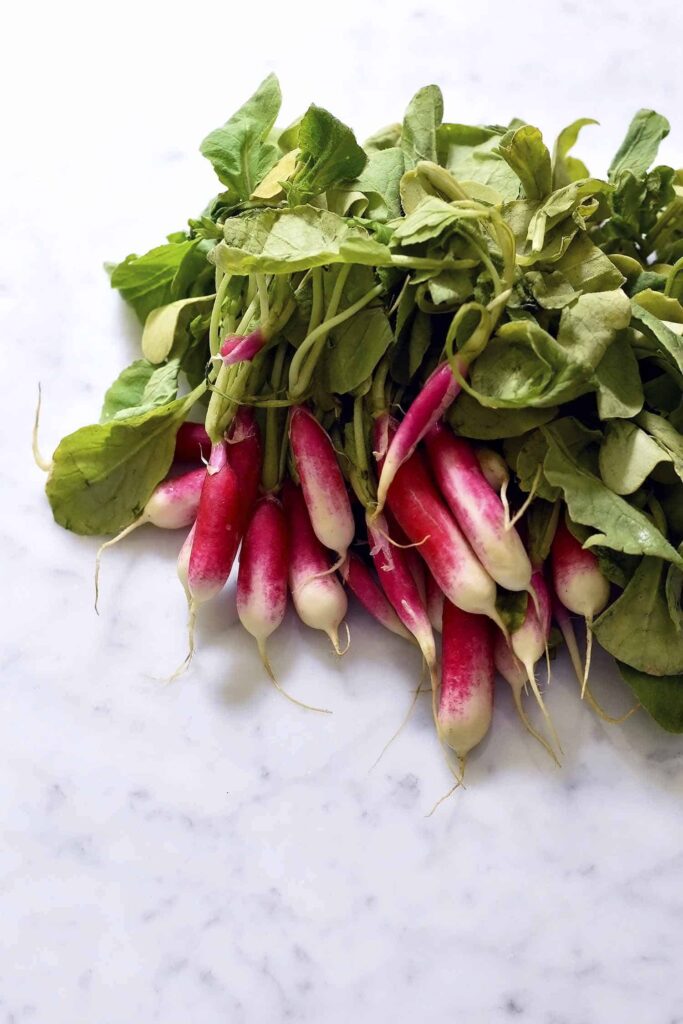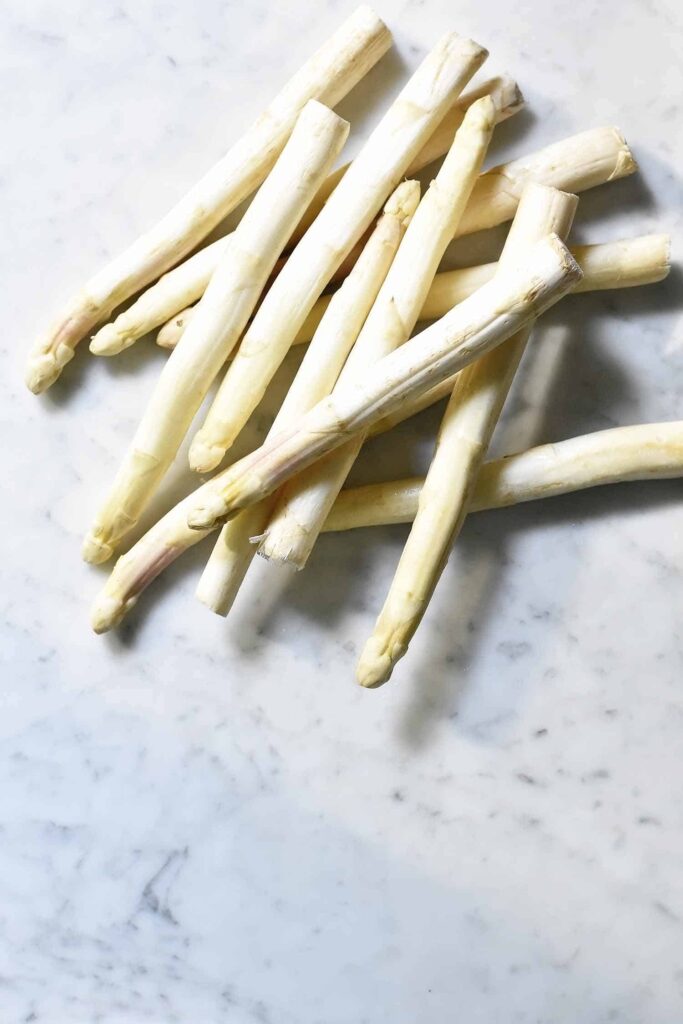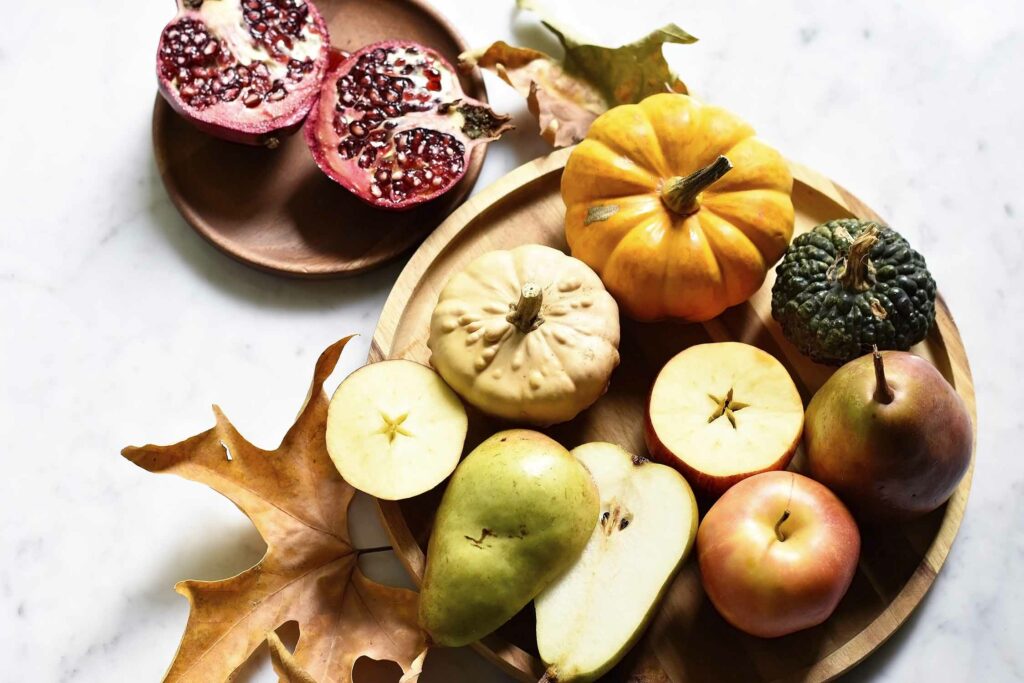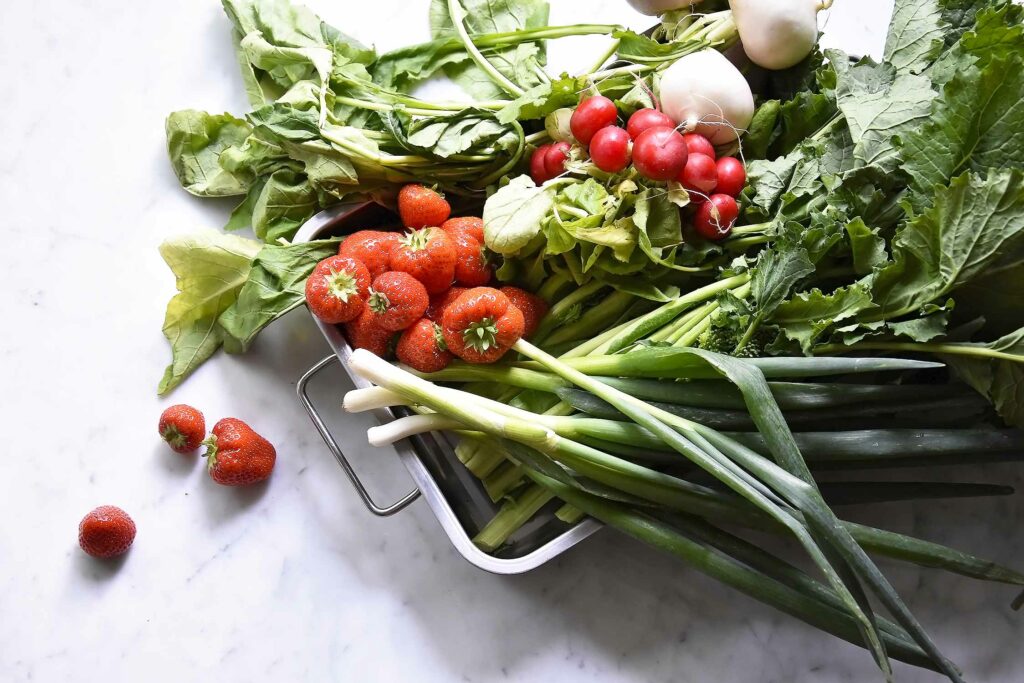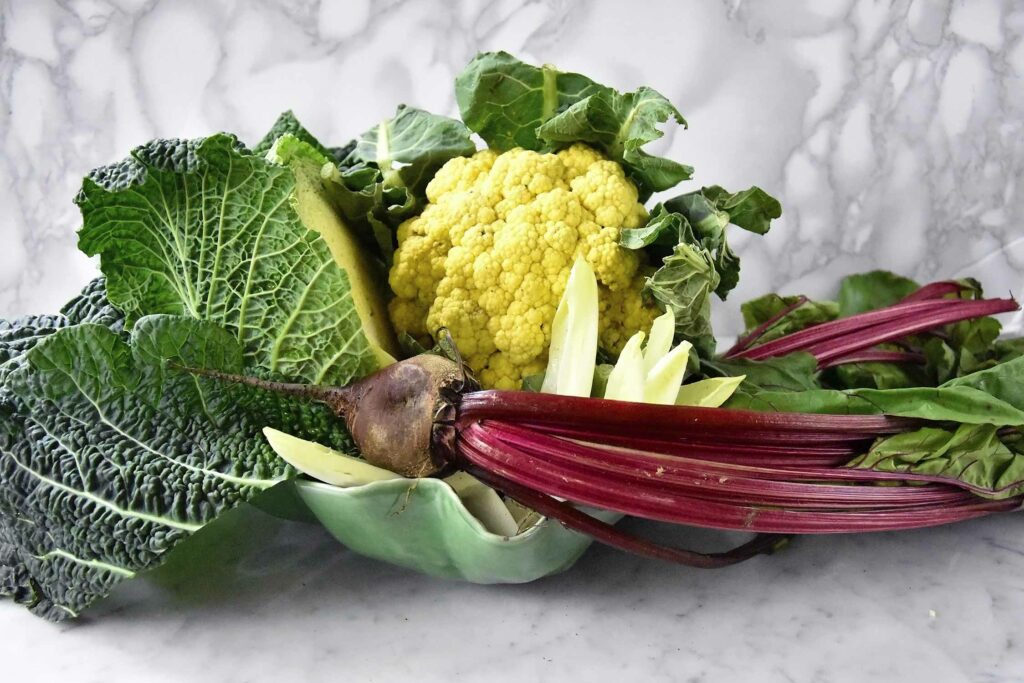Hello Spring!
Find below the list of ingredients to look forward too and recipes to cook all season long.
I was taught at young age by my dad, 2 Michelin star chef but mostly nature lover, how important eating seasonal and local produce is and I have to say I lost my way there for a bit. Now I am fully committed to seasonal and as local as possible ( not always easy living in a capital).
WHAT IS SEASONAL PRODUCE?
Seasonal refers to the moment the fruit and vegetable is harvested when ripe and at it’s peak for consuming.
Whether you buy organic or traditional farmed produce, seasonal is key. However you may want be mindful of what is called the “Clean 15” and the “Dirty dozen”, these lists are made by the US Department of Agriculture.
“CLEAN 15” – refers to 15 fruit and vegetables that have the least amount of pesticide residue: avocados, corn, pineapple, onion, papaya, frozen sweet peas, eggplant, asparagus, cauliflower, cantaloupe melon, broccoli, mushrooms, cabbage, honeydew melon and kiwi.
“DIRTY DOZEN” – refers to 12 fruit and vegetables with the most pesticide residue: strawberry, spinach, kale. nectarine,s apples, grapes, peaches, cherries, pears, tomatoes, celery, potatoes, peppers.
Organic produce can be slightly more expensive but will have no synthetic pesticide residue as they use non-synthetic i.e. natural pesticides low in toxicity versus traditional farming.
The reason to buy organic goes beyond pesticide residue as this method of farming supports more biodiversity and a sustainable ecosystem. Permaculture farming uses natural patterns to grow produce where the ecosystem, caring for the earth, and zero waste are key ethics.

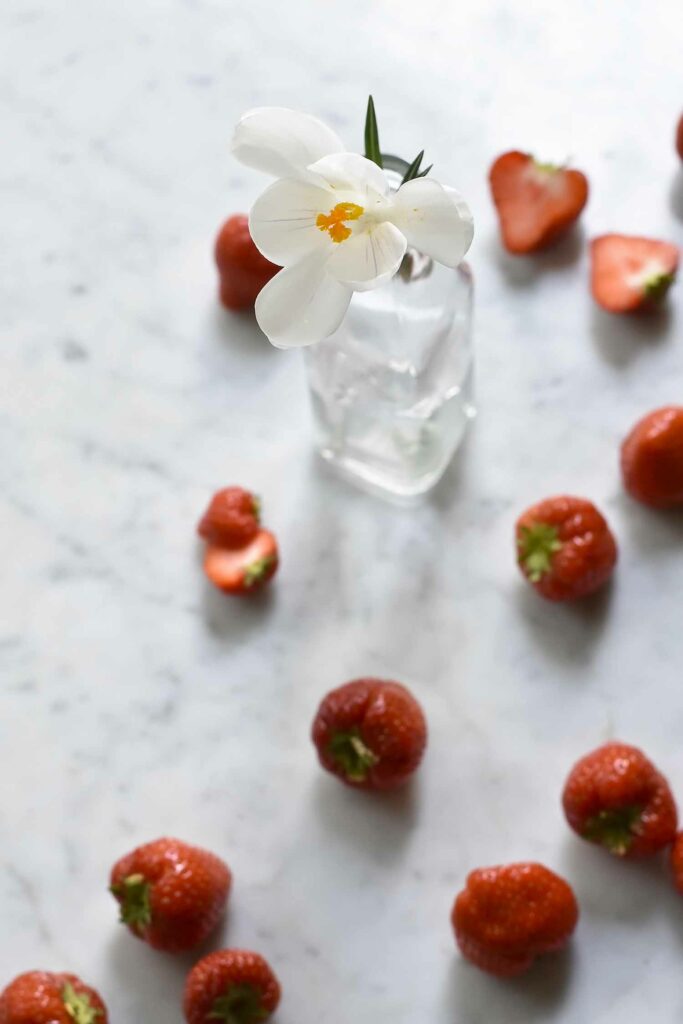
7 BENEFITS EATING SEASONAL
1. Seasonal fruit and vegetables tastes better and ve more flavour because they have been picked when ripe versus ripen in a crate while traveling.
2. It is better for you as they contain more nutrients. When picked early, require cooling for transport and then heating for ripening, you loose heaps of nutritious value.
3. It is cheaper, as cooling, heating and transport costs are huge and you pay for it.
4. By eating seasonal and local you support your local farmers. You practise farm-to-table, click here for my article to learn more about it.
5. You can enjoy variety all year long. Not only looking forward to produce coming in season and enjoying it but also variety in your diet helps you fight disease and viruses.
6. It sparks creativity and pushes you to try new recipes, and not get bored with cooking each week the same dinners.
7. It helps the environment! It reduces the carbon foot print significantly when you eat seasonal (and local). Not only saving on cooling, transporting and heating but also on chemicals and water to add to the ground to be able to produce fruit and veg out of season.
Bear in mind that during the season ingredients evolve in flavour. Following a recipe also means tasting every stage while cooking so you can adjust seasoning and cooking times to find the best balance for the seasonal produce at that time.
Several fruits and vegetables start at the end of one season and beginning of another, some cover 2 seasons. When in doubt what is in season when, just remember to look towards nature and ask “would this be ripe now ?”.
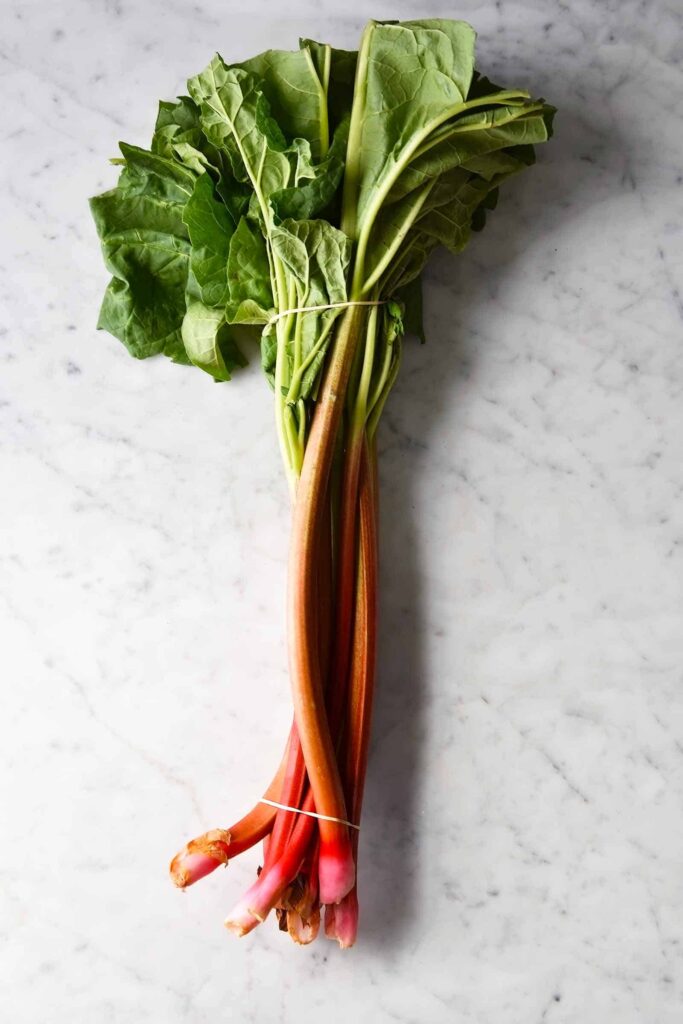
RHUBARB
Totally versatile vegetable for both savoury and sweet dishes and of course jam
check out my 3 amazing recipes :
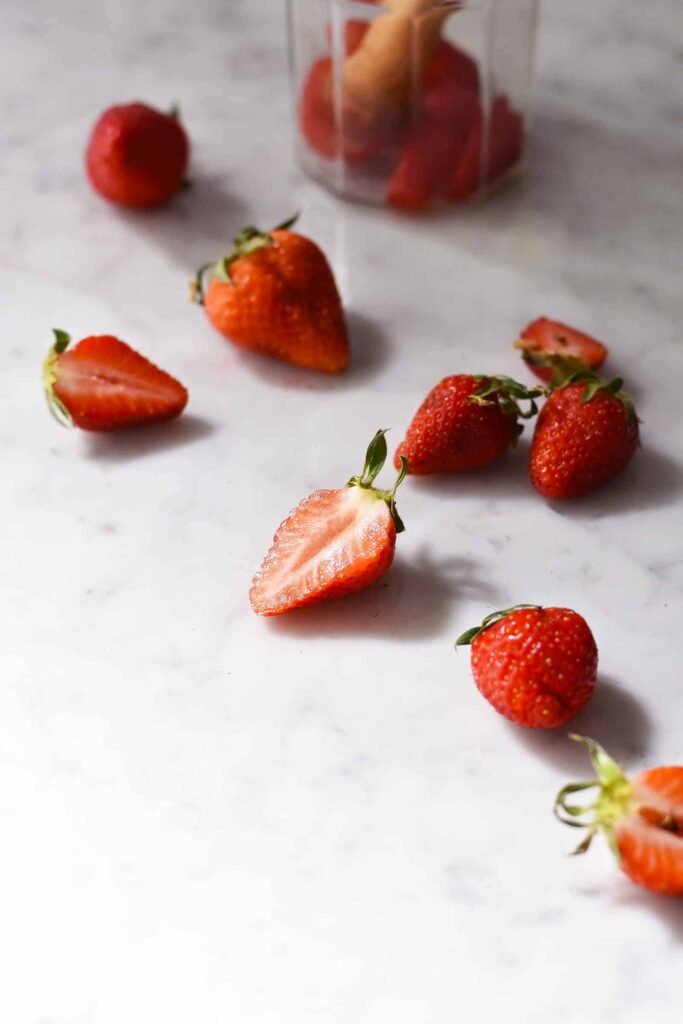
STRAWBERRY
The first of the berries to come in season and oh boy are we happy after winter to have this fabulous sweetness!
Of course strawberry jam ( recipe here) and desserts are a must. My rose and strawberry clafoutis, recipe here. and my almond and maple cake with strawberries and mascarpone is just delish!( recipe here)
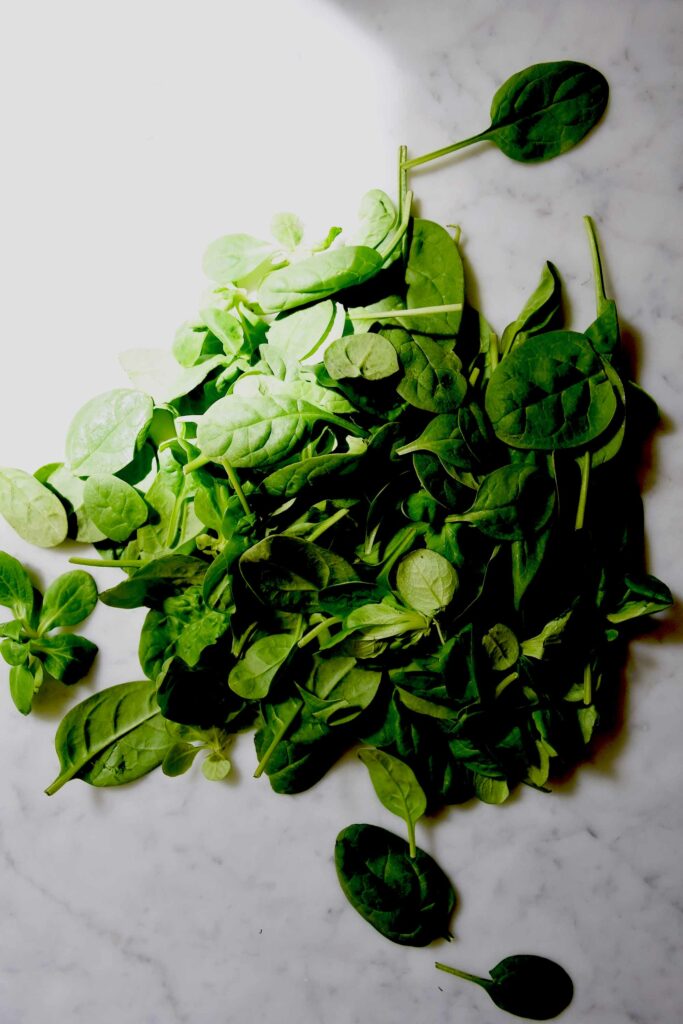
SPINACH
Those crispy green leaves are just delightful almost all year round available as there is a winter and spring variety. I prefer the spring variety with its small delicate leaves, just raw or wilted in the pan.
check out my vegan spinach gnocchi here .
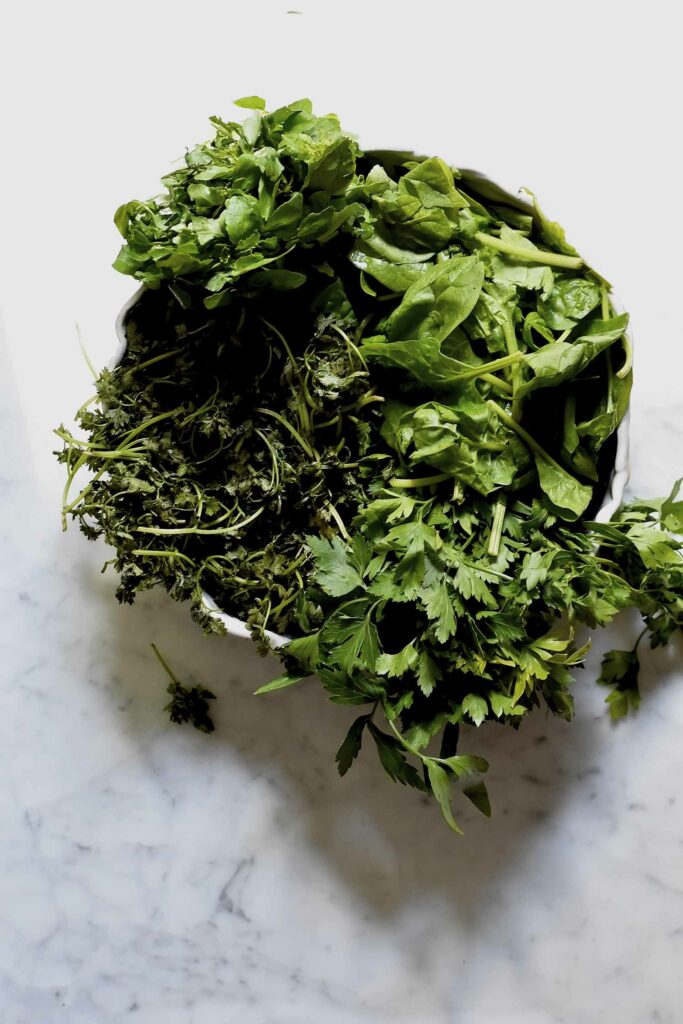
SALAD GREENS
All year around you can grown your own salad leaves from roquette to lettuce to sorel.
There are soo many to choose from and its great to mix them up.
A great Caesar Salad is just fab, recipe here.
and grilling baby lettuce is a great way to pump up the favour, recipe here.
Adding them to a sandwich for some extra crunchy d freshness is Devine, here my grilled halloumi sandwich.
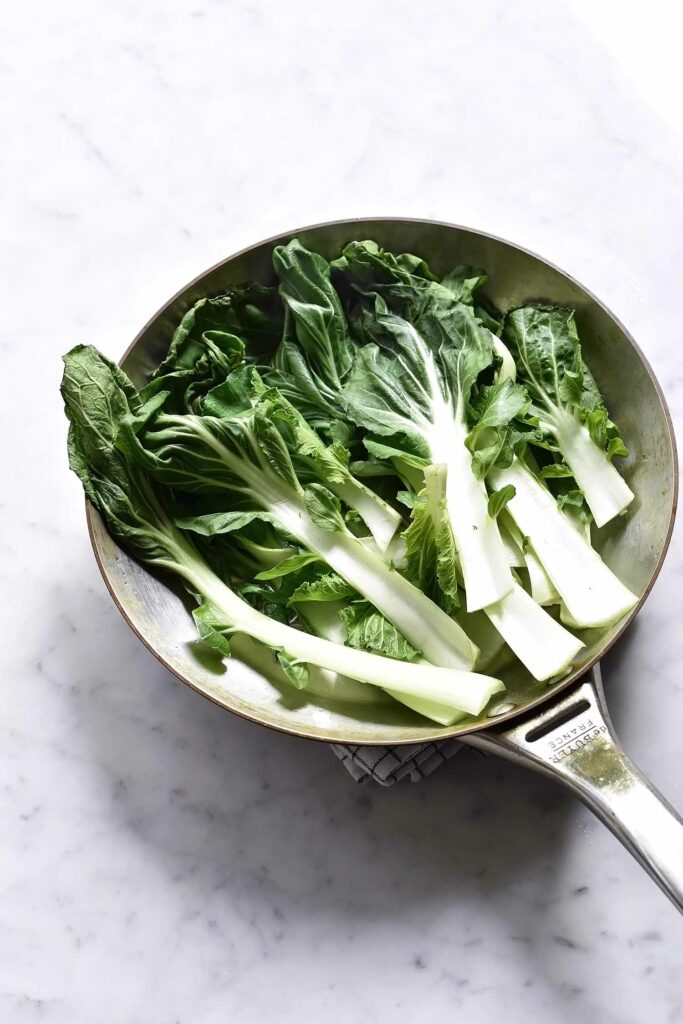
BOK CHOY
Originally a chines cabbage but now grown in Belgium as well and winter to spring available.
Check out my wilted bok choy and miso lacquered octopus here.
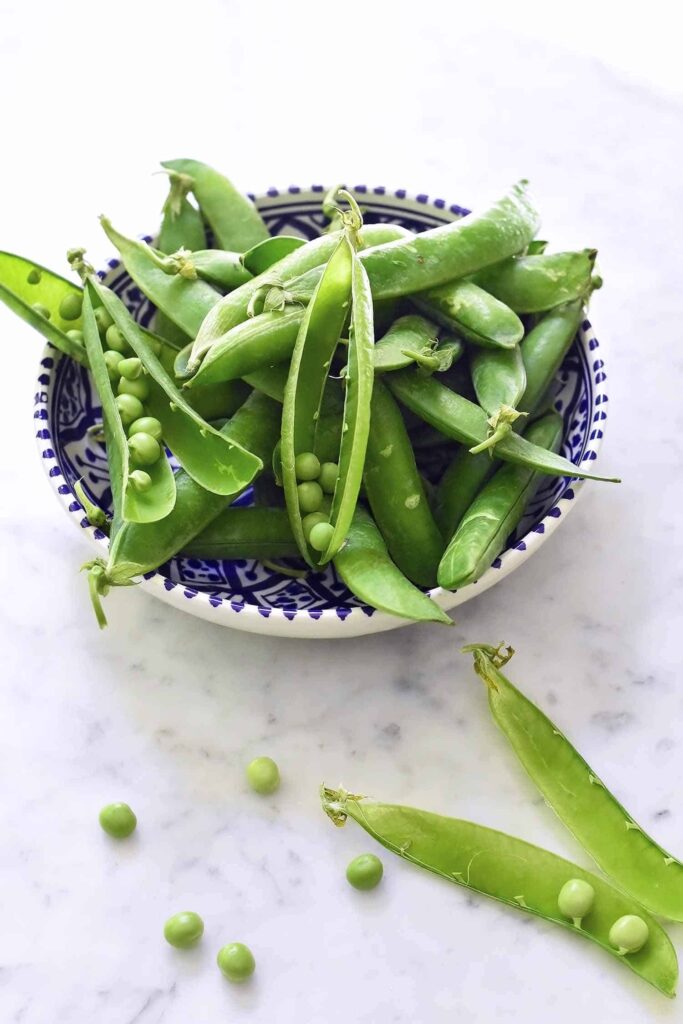
PEAS
To be honest I use frozen peas all year round but when the fresh peas come in season closer to summer, they are such a treat to eat raw like little candies. And the sweet pea flowers are such a childhood memory for me.
Check out my pea and mint hummus here
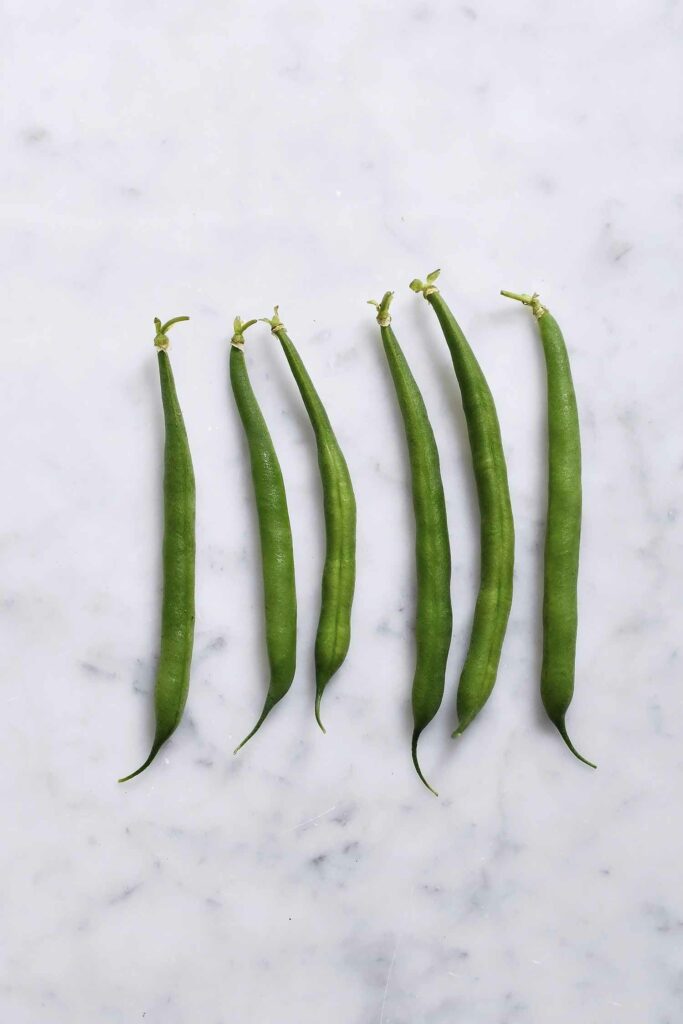
GREEN BEANS
One of my favourite vegetable comic into season late spring and summer, just sooo yummy and versatile.
Check out my version of Nicoise salad here.
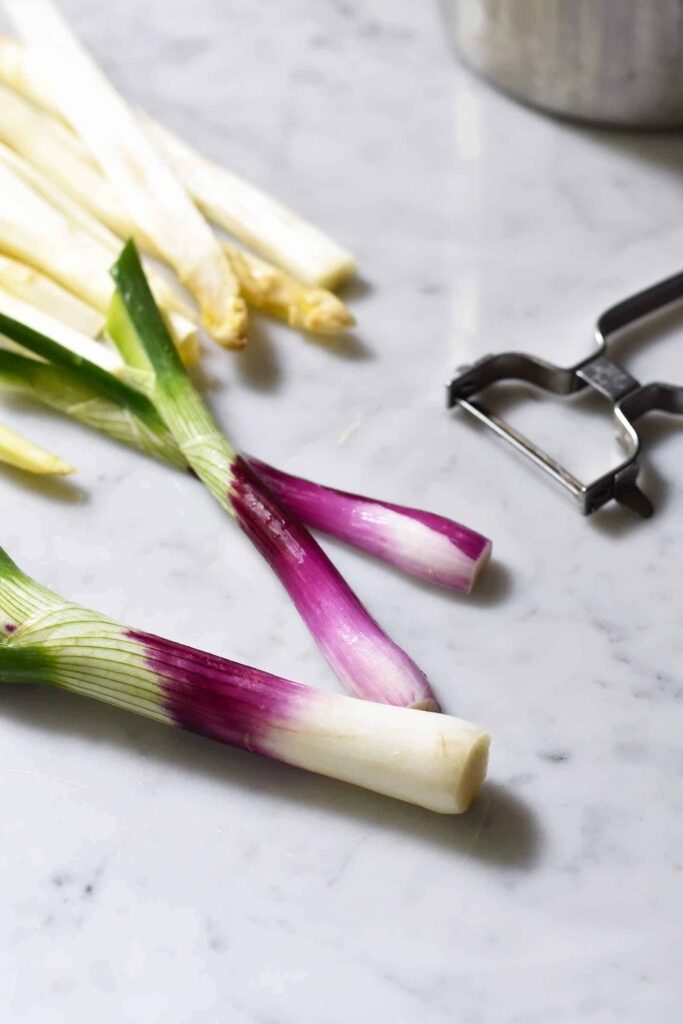
SPRING ONIONS
Also called scallions or green onions, often topped Asian curries as a refreshing touch.
Check out this fabulous Spring tart (recipe here )
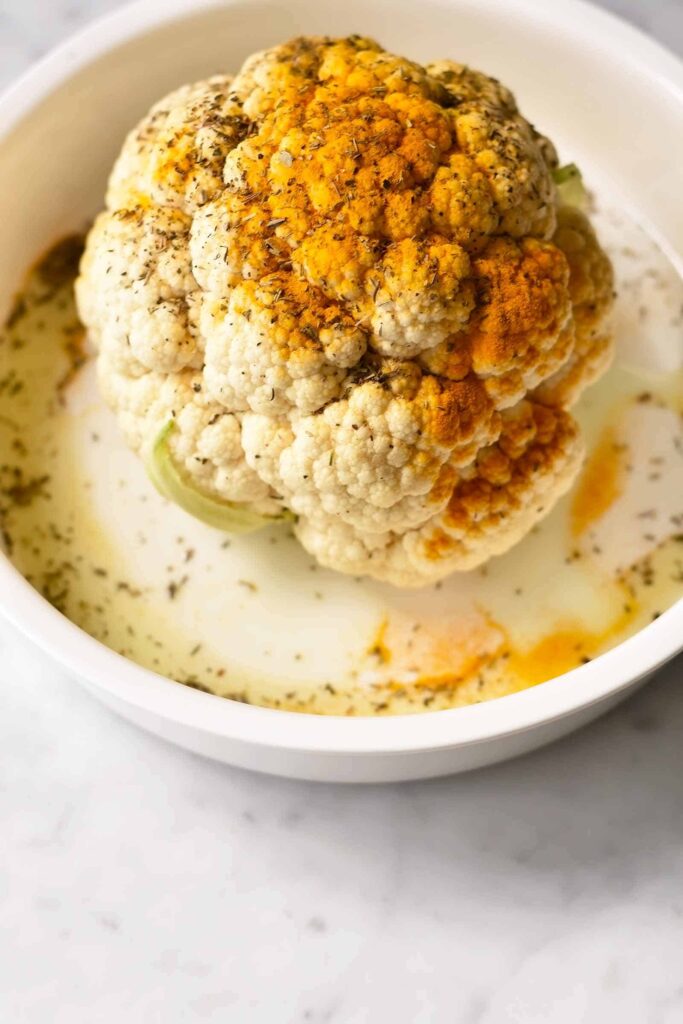
CAULIFLOWER
Late spring and early summer all cauliflowers pop up and I love them. Wether you whole roast it in the oven or steam the florets or use in a béchamel, just so versatile.
Check out the florets in this salad here , and my roasted romanesco with fried eggs here
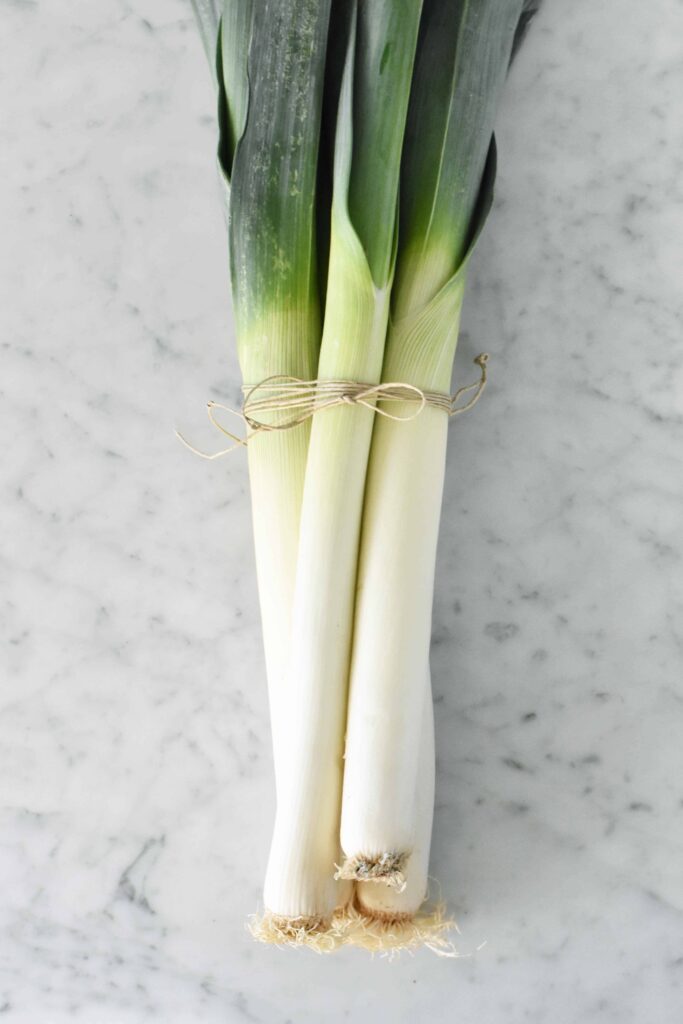
LEEKS
There are winter and spring leeks, different variety but same flavour, this means we almost have all year round leeks and what would we do without them?
Every soup or stock is made with leeks but they are also delicious with vinaigrette sauce or roasted in the oven.
The Belgian Classic meatloaf with vinaigrette leeks, recipe here
My leeks and potato pizza, recipe here
My dill and leeks fish pie, recipe here
For the complete Seasonal Chart, click here.
Written and photographed by Sandra Slawinski without commercial deals.

